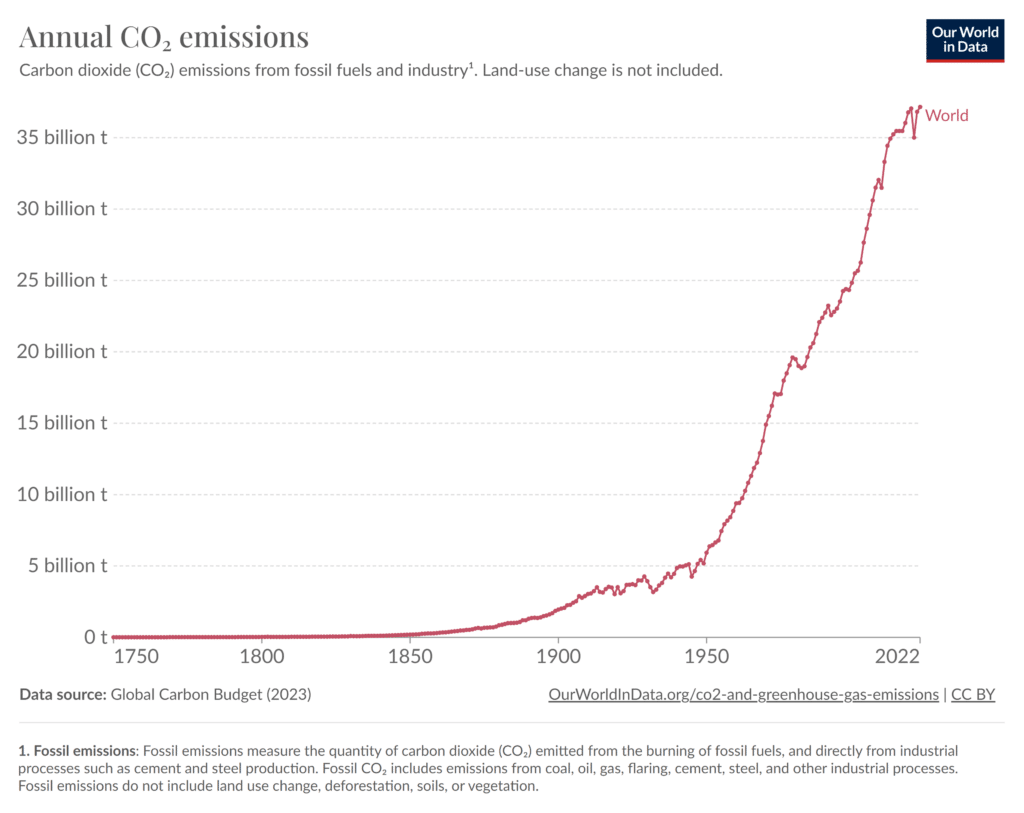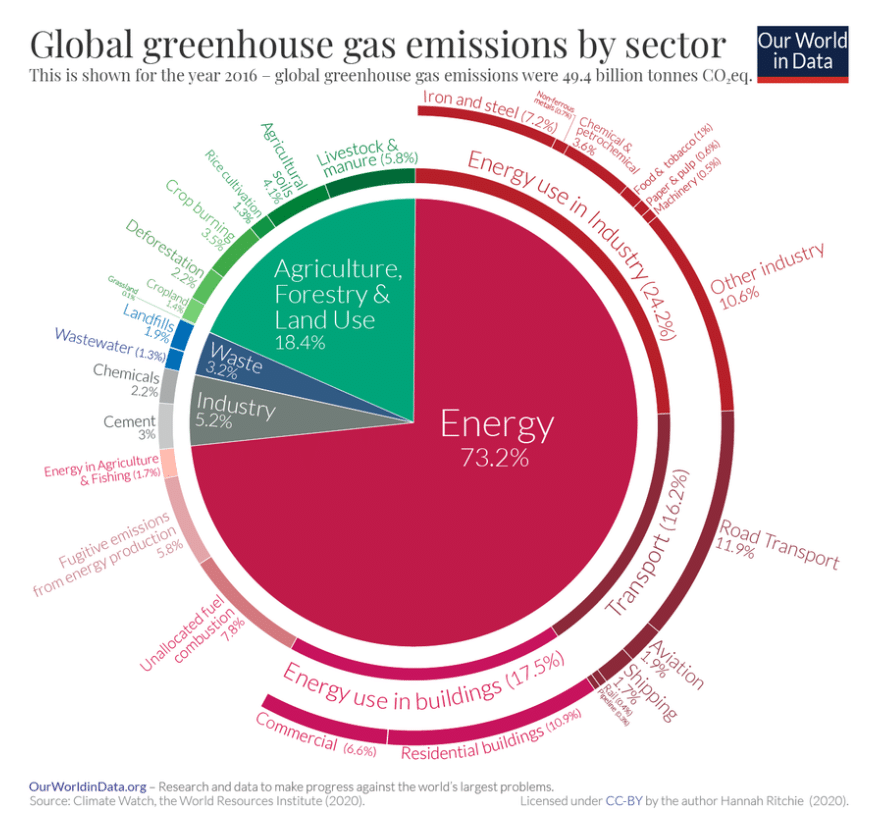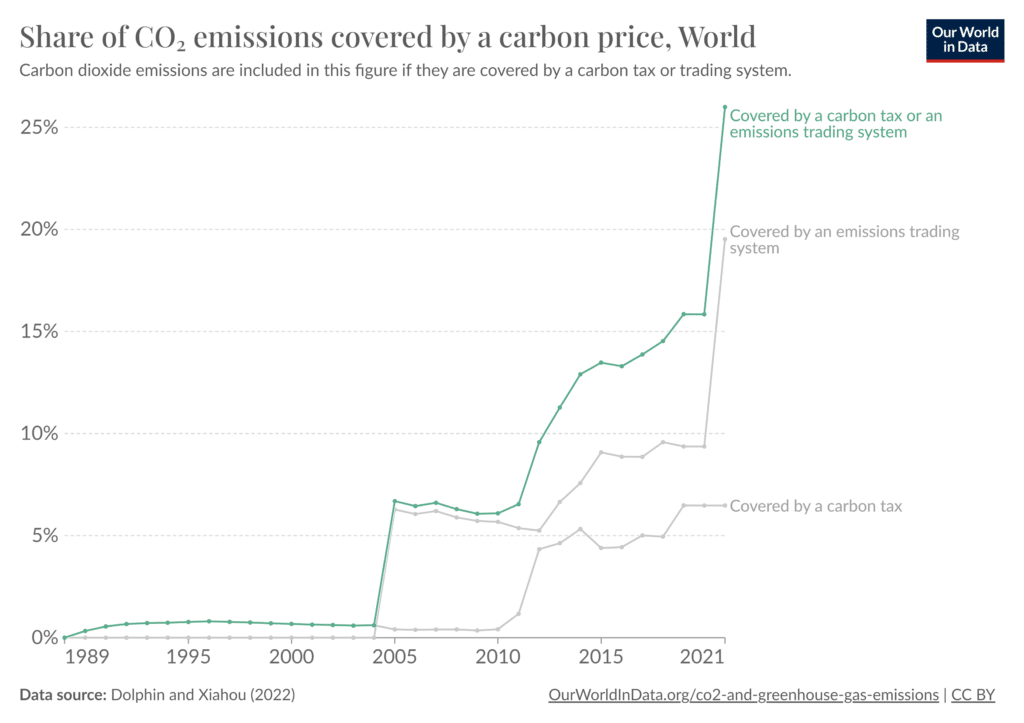Capitalism and Climate Change: A Dual Force Shaping Our Future
Source: Steve Tobak
21 December 2023 – by Eric Koons
The issue of climate change is inextricably linked with the growth of capitalism and economic growth. While capitalism has driven economic growth and a rapid increase in the standard of living, it has also led to higher CO2 concentrations and greenhouse gases in the atmosphere than in any period in history. In 2019, atmospheric CO2 was 409.8 parts per million (ppm), likely higher than at any point in the last 800,000 years.

Role of Capitalism in Climate Change – Economic Growth and Climate Crisis
The correlation is clear: as industrialisation has surged, so too have emissions and climate crisis, altering the Earth’s climate at an unprecedented rate. However, this doesn’t have to be the case going forward. Capitalism can facilitate the adaptation and mitigation of climate change and can save the environment of the earth for future generations.
The Capitalist Contribution to Climate Change
Capitalism, characterised by its competitive markets and profit-driven motives, has inadvertently fuelled climate change. The race to meet growing consumer demand at faster rates often leads to increased resource consumption and higher emissions. This trend is seen historically with the advent of manufacturing during the Industrial Revolution. This involved the widespread adoption of fossil fuel-powered vehicles in the 1900s and evolved into cases like Amazon’s rapid shipping model of today.
This relentless pursuit of efficiency and growth in various sectors, from retail to manufacturing, perpetuates a cycle of environmental harm.
Fossil Fuels: The Capitalist Lifeline
Fossil fuels stand as a prime example of capitalism’s environmental impact. Today, nearly every industry relies on burning fossil fuels for production and transportation. As economic growth continues in the global economy, so too does the demand for energy and fossil fuels.

As of 2022, 91% of global CO2 emissions were linked to fossil fuels. Of this, over 73% is due to energy production. As it stands, consumer demand for goods and services will continue to climb. So, reducing the emissions tied to economic growth is crucial. Limiting these emissions requires reducing fossil fuel use, underscoring the necessity of a global shift to renewable energy.
What is the Climate Capitalism?
However, capitalism and climate change don’t have to be at odds. The idea of climate capitalism offers a more sustainable approach, aligning economic interests with environmental preservation.
This concept revolves around the growing consumer and governmental appetite for green products, steering the capitalist system towards eco-friendly alternatives. As demand for low-carbon products increases, the private sector will invest more in developing environmentally friendly products to meet the demand.
This shift is already underway in nearly every sector, from the rising demand for electric vehicles to renewable energy sources, i.e., solar power and wind power. However, these low-carbon alternatives still comprise just a fraction of global products. For example, electric vehicles comprised 14% of all new car sales in 2022, and renewables comprised 29% of global electricity production in 2020.
At this current rate, the world is still not on track to meet the Paris Agreement goal of keeping global warming below 1.5oC. Consumers and governments must push the private sector and fossil fuel industry to speed up the energy transition away from fossil fuels.
Government’s Role in Facilitating Sustainable Capitalism
Governments play a pivotal role in nurturing climate capitalism. Policies like tariffs, import-export restrictions and regulatory frameworks can incentivise businesses to adopt more sustainable practices. This approach not only curbs environmental degradation but also fosters innovation in green technologies.
For example, as of 2022, 46 countries had implemented policies that put a price on emissions through direct carbon taxes or emissions trading schemes. These policies mean that it is more expensive for private sector companies to produce products with higher emissions. As a result, the policies incentivise companies to look at lower emission options. As of 2021, a carbon price was in place for 26% of global emissions. While this is still far below what is needed, progress is being made.

Climate and Capitalism: Coexisting For a Greener Future
Overall, the narrative that capitalism is inherently detrimental to the climate is overly simplistic. The reality is that for decades, the focus was on unchecked economic growth without considering its environmental cost to human beings.
The future necessitates a symbiotic relationship between capitalism and climate action, which is essential for limiting global warming to below the critical 1.5°C threshold. Robust government policies will be crucial in steering this new era of sustainable capitalism, ensuring that economic development does not come at the expense of our planet.
by Eric Koons
Eric is a passionate environmental advocate that believes renewable energy is a key piece in meeting the world’s growing energy demands. He received an environmental science degree from the University of California and has worked to promote environmentally and socially sustainable practices since. Eric’s expertise extends across the environmental field, yet he maintains a strong focus on renewable energy. His work has been featured by leading environmental organizations, such as World Resources Institute and Hitachi ABB Power Grids.
Read more
